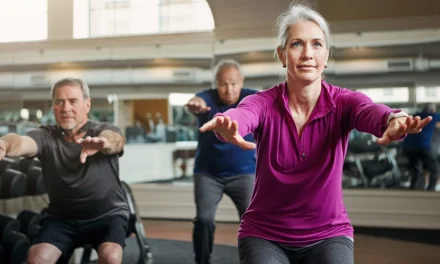In a world full of fads and filters, it is increasingly more difficult to rely on answers to the question, “What do you do to stay in shape?” Even when reliable answers exist, the average woman who is working every day, raising children, supporting a spouse, and/or caregiving for an aging parent questions when is there time for meal prepping, working out, or cooking well-balanced meals? One key component often missed in the quest to be fit is the interplay between mental health and physical health. A healthy mindset and effective emotional regulation are essential to sustain true health. How relevant is the mind-body connection? Let’s highlight that there are mental illnesses identified as eating disorders. Similarly, disorders such as anxiety and depression negatively impact one’s sense of self including beliefs about personal ability and appearance. There are stress-related conditions that arise from trying to “do it all” and emotional distress from being overwhelmed, feeling like a failure, or not being good enough. These mental and emotional pressures make it even more difficult to engage in and maintain activities for healthy living. It is essential to look at mindset as a foundational component to being fit and healthy.
Truth in Action
Sharing truth in action to maintain fitness is paramount. Not all desired physical outcomes are achieved by only completing dedicated gym workouts daily. Consultation with your healthcare provider may determine whether other interventions are appropriate to help you meet fitness goals. We should be transparent regarding ALL of our health strategies to promote what is healthy physically and mentally. People you admire for their healthy appearance may take a supplement or have completed surgery to assist in setting, obtaining, and maintaining fitness goals. There is no shame in accessing appropriate interventions and aids. When we are armed with such truth in action, we can develop more realistic thoughts and expectations about what can be accomplished physically.
Standards vs. Strategies
Commitment to comparison hinders a healthy mindset towards personal fitness. Challenge beliefs in a “standard of beauty” to compare yourself to and instead adopt “options for beauty.” Looking at social media influencers, Hollywood celebrities, or friends and family should only help build your appearance preferences. As you identify options for fitness and beauty, you can develop strategies for achieving those options that fit your personal life, health history, and available resources. This creates a mindset of self-acceptance and personal accountability often not achieved when you continuously beat yourself up for not achieving an externally derived standard. And don’t go it alone! Consider having a mental health professional on board to assist with developing appropriate thought control and emotional regulation strategies.
Fitness as a Feeling
It is important to broaden your concept of fitness! Fitness is more than how you look, it’s also about how you feel, physically and mentally. Do you feel winded after a flight of stairs? Are you exhausted after a day’s work? Are you overwhelmed and just want to scream? My personal trainer stated, “Everyone is worried about having a flat stomach and big butt when they should be focused on how healthy their heart is.” When we approach fitness as a feeling, it creates the path to a more holistic understanding of self and health and better control over the strategies you employ. The focus shifts from simply presenting a look to engaging in a quality of life that you take pride in creating. Then fitness changes from a struggle or fight to a way of life that is enjoyable and uplifting.
For more information or to make an appointment, call 901.682.4930 or visit Drlpmassey.com.
By Dr. LaShaunda P. Massey, Clinical Psychologist







